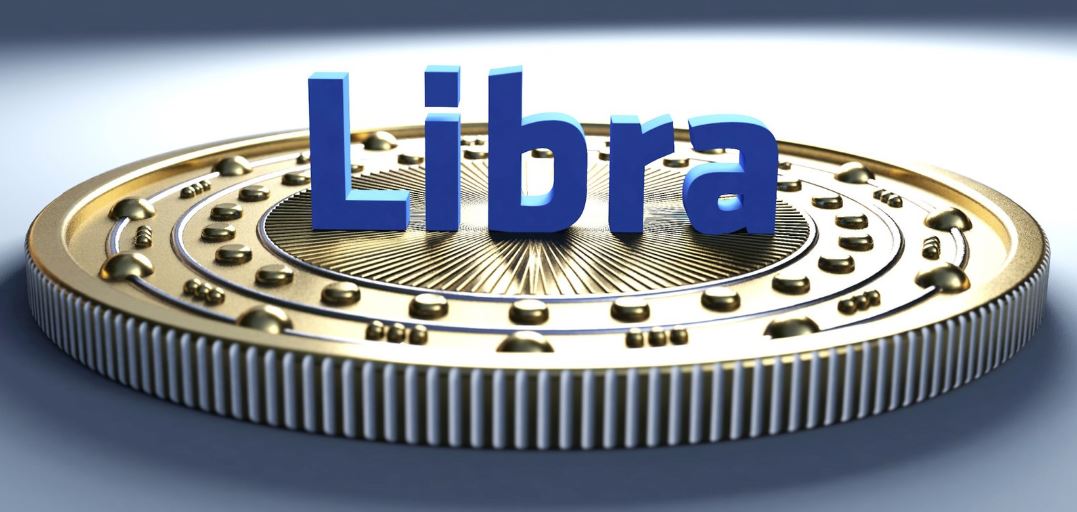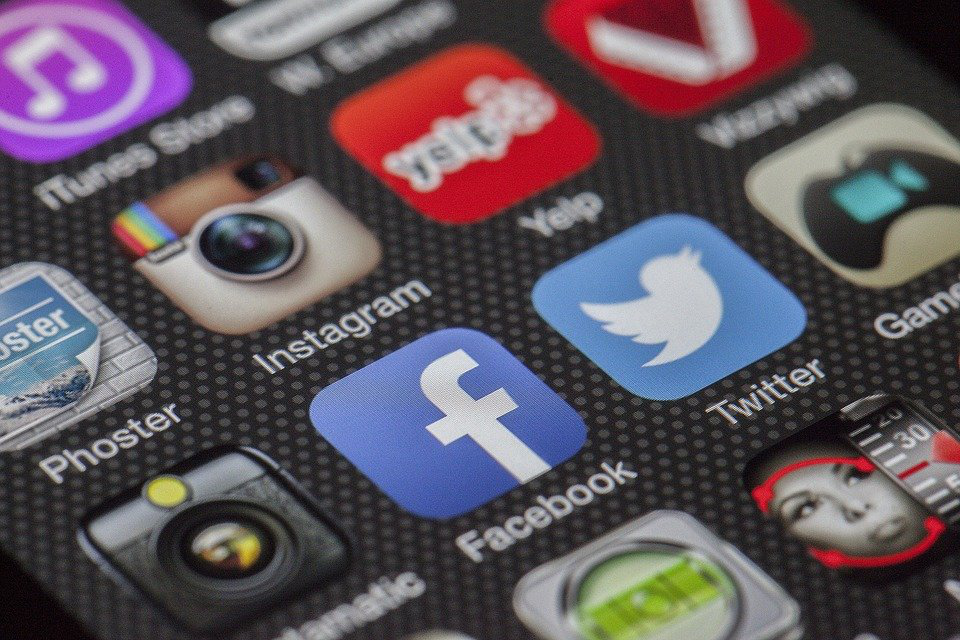Why Facebook's Cryptocurrency Libra Wasn't Well Received

Image source: Flickr
Pound, yen, euro, the "great" dollar...the list can goes on but no one can dispute that currencies have power. Every economy has been founded on the strength of its currency. However, we tend to push this fact to the side.Let's look at it like this: The concept of capitalism is popularly defined as
"the economic collaboration between mere acquaintances for the purpose of mutual advantages."
However, the technological structure of this century is reshaping such a definition quite rapidly. In this era, one establishment can have more financial capability and control over universal commerce than even over a prosperous government. Enter...
Facebook’s Libra
Those following the developments of crypotcurrency were initially abuzz about Facebook (FB). Specifically Facebook's Libra (LIBRA), known internally at Facebook as "GlobalCoin". And for some, Libra is still a global phenomenon, at least at the moment.
Facebook’s cryptocurrency Libra aims to supplant other digital currencies and eradicate "dollars". However, it seeks to peg its value against a basket of established currencies such as the US dollar, Yen, and Euro. This will ensure that Libra's value remains stable.
By contract Bitcoin (BITCOMP) is highly volatile, constantly changing as a result of investors' interest, Libra doesn't. It shows the entire economic standing of the five countries that own the currencies. Only a worldwide recession can cause the Libra to be unstable. Additionally, a 28-member nonprofit organization, The Libra Association was formed in June 2019 to oversee the cryptocurrency’s creation and eventual rollout. The association was meant to included highly respected companies such as Paypal (PYPL), Visa (V), Mastercard (MA) eBay (EBAY) and others. But many of these companies have left the association citing political pressure. However the Libra Association still boasts 21 members, including Shopify (SHOP), which announced last week it was joining the association, the first addition since the mass defection.
The backlash faced by Libra has been fierce. Let’s have a closer look at what went wrong...
What the real problem is
For many, the concept of a digital currency is a powerful disruptor and Facebook is uniquely positioned to encourage widespread adoption of its currency. Facebook reaches 2.5 billion people, still touts major support among other companies, and are leaders in technological development. The real issue comes to what the company lacks most: trust.
Facebook has been in the spotlight and even the congressional hotseat for its questionable practices and many users rank Facebook as very low on the trust scale. Yet trust is paramount when it comes to faith in currency. While no one disputes that Facebook has the technical expertise to create a digital currency, it lacks credibility. Facebook needs the backing of other major companies to back up it's efforts. The mass defections have led to regulators and potential customers losing faith in the currency.
So, let's go over a few reasons why there was such a negative reaction to Facebook's Libra...
● Payments systems are complex and complicated
Putting together a payments system is a rather rigorous process. A huge investment is required for such an endeavor to be compliant. In the world of banking, there is so much attention to detail as these financial institutions have to comply with regulations that help to avoid problems. These avoidable issues include tax avoidance, money laundry, as well as counterfeiting/hacking and the financing of terrorism.
Taking steps to come up with a new system from scratch isn't something that an organization with the reputation of Facebook (known for questionable ethics and privacy issues) should be championing.
● Systemic risk
The second problem that must be considered is the fact that the Libra system brings a degree of systemic risk along with it. We have strong reason to believe that the Libra reserve is made up of financial assets and bonds currently backing the Libra currency. Ever imagined what would happen should such a system be hacked?
And what if a high percentage of Libra currency users decided to sell what they had, all at the same time; it would cause the reserve go into fire sale mode.
It's pretty obvious that putting together a private network of international payments that gets it backing from taxpayers is a huge risk that is bound to fail eventually.
● How commerce and banking intersect
The US continues to reinforce barriers concerning how commerce and banking intersect. We've seen Congress take steps to ensure that banks do not engage in businesses that are meant for non-banks. Specifically to avoid the competition of customers between capitalists and banking institutions. The business of payments and banking is a special one that gives banks free access to how firms and companies interact with their clients.
What would it look like if Calibra (a Facebook subsidiary launched to build financial services and software on top of the Libra blockchain) has access to your account balance, as well as your expenditures?
And how would it sound if it offered retailers algorithms for price maximization since it could compute what any individual could afford at any moment for specific products?
Such a level of visibility into the finances of businesses and consumers raises numerous ethical dilemmas. Due to this clash of interests, the US will continue to separate the entire economy from banking and payments.
We have also yet to consider the kind of power stakeholders from the Libra cartel would have with this ability to access and exploit vital information for their own personal benefits.
● Privacy and Security
National security will always be paramount. It should be up to governments, not private institutions, to determine to what degree the flow of money becomes open and easily accessible across national borders. A currency system that does not seek permissions simply because a few big players in the private sector have reached a consensus hardly seems like a great idea. It is certainly not democratic in any way.

Losing faith in Facebook
The concept of the Libra Association was a powerful way of adding much needed credibility through the backing of other prestigious companies. This was intended to be an external regulatory body to the cryptocurrency. But the defections show that these companies are beginning to rethink their affiliation with Facebook. The political pressure would likely not have been enough had they not already had doubts to Libra's feasibility and worth. This is quite reasonable considering how Facebook has been criticized on so many fronts. From fake news, ethical shortcoming, political manipulation to privacy concerns such as how it stores users' information and how much access to personal data it gave to contractors.
It is also known from a leaked recording that the CEO of Facebook told his workers about his plans to lead the development of digital currency and his intention to create an independent governing body. This association would create broad consensus and support of Libra by initially consisting of about 27 companies, but which was expected to grow to over 100 companies by launch.
With the initial momentum stifled by so many key defections, this prediction now seems unlikely. Facebook was already under tremendous scrutiny and these ambitions plans brought even more unwanted attention on the company. The timing seems odd - why would Facebook consider establishing such a controversial currency at a time when it was the focus of so much controversy itself.
What the future holds for Libra
You should realize that Libra's problems partially came as a result of increased concern about large tech establishments in general. In fact, there are currently antitrust investigations into numerous major tech companies including Google, Amazon, Apple, and of course, Facebook. Companies need to establish better transparency in regards to how user data and other details are utilized. Introducing a new currency into the mix could cause major complications - Facebook has to establish more credibility and quickly; Libra seems to be a step in the wrong direction.
Conversely, governmental bodies across the globe are in a dilemma. Do they embrace a new future by developing digital currencies or try to hold onto traditional commerce. While this debate is still ongoing, Facebook has gone ahead with lumping its large number of users into a currency owned privately. This, you might agree, is a large pill to swallow at the moment. But the future will tell all.
What do you think? Want to continue the discussion about Facebook? Feel free to comment below or on my site, in the Facebook Questions and Answers section.




I agree that #Libra's biggest obstacle is Facebook's credibility issues. But beyond that, I liked the idea of a regulatory body and being pegged against a basket of stable currencies. Bitcoin may be a great bet as an investment, but it's volatility makes it horrible as an actual digital currency.
I agree, no one wants X amount of their money to be able to buy a car one day, and only a pizza the next.